
Description
Lavender Essential Oil for Aromatherapy
Elysian Fields: An Enchanting Sojourn of Serenity and Grace
🌸 Provençal Dream: Gently distilled from the lavender fields that paint the Provençal countryside a shade of regal purple, our oil is a droplet of tranquillity, reminiscent of warm summer evenings and the soft hum of bees.
💧 Velvet Aromatics: Dive into the soothing embrace of Lavender’s signature fragrance. A harmonious blend of floral sweetness with a hint of herbaceous depth, it evokes memories of quaint British gardens bathed in soft twilight.
✨ Therapeutic Sanctuary: Lavender Oil is the heart of aromatherapy, revered for its unparalleled ability to calm the mind, ease anxieties, and beckon restful sleep. It’s more than just an aroma—it’s a portal to peace.
📜 Centuries of Solace: Lavender, with its timeless allure, has graced homes and hearts for generations, offering a comforting presence. Our oil, meticulously crafted and refined, upholds this age-old legacy of relaxation and rejuvenation.
🌍 Nature’s Ode: Passionate about environmental harmony, our Lavender Essential Oil is sustainably cultivated and ethically distilled. Every bottle resonates with the purity of nature and our promise to preserve its delicate balance.
Usage Guidance: Introduce a few drops to your diffuser, weave into a relaxing massage blend, or create a serene bath experience. Adherence to dilution recommendations and an initial skin patch test is always advocated.
Journey to Tranquillity’s Heartland. Let Lavender’s Gentle Whisper Lull Your Spirit.
Latin Name: Lavandula Angustifolia
Part of Plant Used: Flowering Tips
Origin: France
Extraction Method: Steam Distillation
Additional information
| Weight | 0.04 kg |
|---|---|
| Size | 10ml, 50ml, 500ml |
You must be logged in to post a review.
Related Products
Related products
-
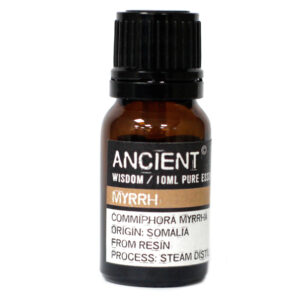
Myrrh Essential Oil
£22.95 – £675.00Price range: £22.95 through £675.00 Select options This product has multiple variants. The options may be chosen on the product page -

Juniper Berry Essential Oil
£5.50 – £130.00Price range: £5.50 through £130.00 Select options This product has multiple variants. The options may be chosen on the product page -
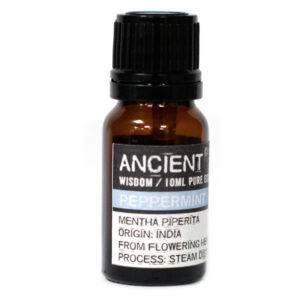
Peppermint Essential Oil
£4.50 – £69.95Price range: £4.50 through £69.95 Select options This product has multiple variants. The options may be chosen on the product page -
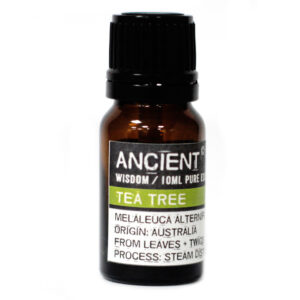
Tea Tree Essential Oil
£3.95 – £69.00Price range: £3.95 through £69.00 Select options This product has multiple variants. The options may be chosen on the product page
Lavender Essential Oil for Aromatherapy: Benefits and Uses
Lavender essential oil is a popular choice for aromatherapy enthusiasts. It is known for its calming and soothing effects on the mind and body. This oil is derived from the lavender plant, which is native to the Mediterranean region and has been used for centuries for its medicinal properties.
Understanding Lavender Essential Oil and its extraction process is crucial to utilizing its benefits. The oil is extracted through steam distillation from the flowers of the lavender plant. The chemical composition of the oil varies depending on the species of lavender used, as well as the location and climate in which it is grown. Lavender essential oil is primarily composed of linalool and linalyl acetate, which are responsible for its therapeutic effects.
Key Takeaways
- Lavender essential oil is derived from the lavender plant and is known for its calming and soothing properties.
- The oil is extracted through steam distillation and contains linalool and linalyl acetate.
- Lavender essential oil can be used for aromatherapy, topical applications, cosmetics, and perfumery.
Understanding Lavender Essential Oil
Lavender essential oil is one of the most popular and versatile essential oils used in aromatherapy. It is extracted from the flowers of the lavender plant through steam distillation, and it has a sweet, floral, and herbaceous aroma. The oil is clear with a thin consistency and can range in colour from pale yellow to colourless.
The lavender plant is native to the Mediterranean region and has been used for centuries for its calming and relaxing properties. There are several different species of lavender, including English lavender (Lavandula angustifolia), French lavender (Lavandula dentata), and spike lavender (Lavandula latifolia). Each species has its unique properties and aroma profile.
Lavender essential oil is popular among aromatherapists due to its many benefits. It is known for its calming and relaxing properties and can help reduce stress and anxiety. It is also a natural sleep aid and can help to promote restful sleep. Additionally, lavender essential oil has anti-inflammatory and analgesic properties, which make it useful for treating a variety of conditions, including headaches, muscle pain, and menstrual cramps.
When purchasing lavender essential oil, it is important to ensure that it is pure and not synthetic fragrance. Pure lavender essential oil should be extracted through steam distillation without additives or synthetic ingredients. It is also important to note that there are different grades of lavender essential oil, with the highest quality being referred to as “therapeutic grade.”
Overall, lavender essential oil is a versatile and beneficial oil that can be used in a variety of ways in aromatherapy. Whether diffused, added to a bath, or used in a massage oil, lavender essential oil is a must-have for any aromatherapy enthusiast.
Extraction Process
Lavender essential oil is extracted through steam distillation of the plant’s fresh or partly dried leaves. This process generates more oil than other techniques due to the reduction of polar compound loss. The harvest of lavender blooms typically happens around the month of June. The lavender flowers are then compacted into a still.
During the steam distillation process, steam is passed through the lavender flowers, which causes the oil glands to burst and release the essential oil. The steam and oil mixture is then cooled, causing the oil to separate from the water. The oil is then collected and stored in a dark, cool place.
It is important to note that the quality of the lavender essential oil can be affected by the temperature and pressure applied during the distillation process. Therefore, it is essential to use the correct equipment and techniques to ensure the highest quality of oil.
Carrier oils can also be used during the extraction process to dilute the essential oil and make it safe for use on the skin. However, it is important to choose a carrier oil that is appropriate for the intended use of the lavender essential oil.
Steam distillation is the most common and effective method of extracting lavender essential oil. It produces a high-quality oil that is widely used in aromatherapy and other applications.
Chemical Composition
Lavender essential oil is a complex mixture of over 100 different chemicals, with linalool and linalyl acetate being the most prominent. These two compounds comprise approximately 70-75% of the oil’s composition. Other significant components of lavender essential oil include phytosterols, coumaric acid, anthocyanins, monosaccharides, valeric acid, glycolic acid and its esters, ursolic acid, coumarin, and herniarin.
Linalool is a terpene alcohol that contributes to the pleasant aroma of lavender essential oil. It is also found in many other essential oils, such as coriander, rosewood, and basil. Linalool has been shown to have a range of biological activities, including antimicrobial, anti-inflammatory, and analgesic effects.
Another important component of lavender essential oil is limonene, a cyclic terpene that is found in many citrus fruits. Limonene has been shown to have a range of therapeutic effects, including anti-inflammatory, antioxidant, and anticancer properties.
Other minor components of lavender essential oil include geraniol, borneol, cineole, and camphor. These compounds also contribute to the oil’s overall aroma and therapeutic properties.
Overall, the chemical composition of lavender essential oil is complex and varied, with many different compounds contributing to its unique aroma and therapeutic effects. While linalool and linalyl acetate are the most prominent components, other compounds such as limonene and geraniol also play important roles in the oil’s overall properties.
Lavender Essential Oil and Its Benefits
Aromatherapy is a type of alternative medicine that uses essential oils and other aromatic plant compounds to improve a person’s physical and emotional well-being. It is believed that the inhalation of these essential oils stimulates brain function, which in turn can promote relaxation and reduce stress.
Lavender essential oil is one of the most versatile and well-loved aromatherapy and natural medicine oils. It possesses a myriad of benefits for the mind, body, and spirit. Here are some of the notable benefits of lavender essential oil:
- Calming and Relaxation: Lavender oil is renowned for its calming properties. It can help reduce anxiety, and stress, and promote a sense of peace and tranquillity. It’s often used in sleep aids and meditation practices for this reason.
- Sleep Aid: Inhaling lavender oil can promote better sleep. A few drops on the pillow or used in a diffuser in the bedroom can help improve sleep quality and reduce insomnia.
- Antioxidant Protection: Lavender has been found to upregulate the body’s production of three of its most powerful antioxidants: glutathione, catalase, and superoxide dismutase.
- Pain Relief: It can be used to alleviate headaches, migraines, sore muscles, and joint pain. When blended with a carrier oil, it can be massaged onto the affected areas for relief.
- Skin Health: Lavender oil has antiseptic and anti-inflammatory properties, making it great for combating acne and inflammation. It can also aid in healing minor burns, cuts, and insect bites.
- Respiratory Relief: Inhaling lavender vapours using steam can help soothe respiratory problems like colds, flu, asthma, and allergies.
- Digestive Health: Lavender oil can be used to relieve symptoms like bloating, gas, and stomach pain due to its antispasmodic properties.
- Mood Elevator: The calming scent of lavender can uplift the spirit and combat feelings of sadness or depression.
- Headache Relief: Inhaling the aroma of lavender essential oil or applying it diluted to the temples can help relieve tension and migraine headaches.
- Anti-bacterial Properties: Lavender oil can inhibit the growth of bacteria, making it useful for preventing infections.
- Immune System Boost: Regular use can potentially strengthen the immune system thanks to its antimicrobial and antioxidant properties.
- Hair Health: When added to shampoos or scalp treatments, it can promote hair growth, reduce dandruff, and possibly even combat hair loss associated with conditions like alopecia areata.
It’s important to note that while lavender essential oil offers a wide range of potential benefits, it’s crucial to use it correctly and safely. Always dilute essential oils when applying them topically and avoid ingesting them unless under the guidance of a qualified professional. Furthermore, always conduct a patch test when trying a new essential oil to ensure you don’t have a sensitivity or allergic reaction.
Topical Applications
Lavender essential oil is a versatile oil that can be used topically for a variety of purposes. When applied topically, lavender oil is absorbed into the skin and can provide a range of benefits. This section will discuss two common ways to use lavender oil topically: skincare and massage therapy.
Skin Care
Lavender oil is a popular choice for skin care due to its anti-inflammatory and antiseptic properties. It can be used to soothe and heal a variety of skin conditions, including blemish-prone skin. Here are a few ways to use lavender oil for skin care:
- Acne: Mix a few drops of lavender oil with a carrier oil such as jojoba oil and apply to the affected area.
- Sunburn: Mix a few drops of lavender oil with aloe vera gel and apply to the affected area.
- Eczema: Mix a few drops of lavender oil with coconut oil and apply to the affected area.
Lavender oil can also be added to your daily skincare routine. Add a few drops to your moisturizer or face wash for added benefits.
Massage Therapy
Lavender oil is a popular choice for massage therapy due to its calming and relaxing properties. It can help to reduce stress and tension, making it a great choice for a relaxing massage. Here are a few ways to use lavender oil for massage therapy:
- Body massage: Mix a few drops of lavender oil with a carrier oil such as sweet almond oil and use for a full body massage.
- Foot massage: Add a few drops of lavender oil to a foot bath or foot cream for a relaxing foot massage.
When using lavender oil for massage therapy, diluting it with a carrier oil is important to avoid skin irritation.
Overall, lavender oil is a versatile oil that can be used topically for a variety of purposes. Whether you are looking to improve your skin or relax with a massage, lavender oil is a great choice.
Usage in Cosmetics and Perfumery
Lavender essential oil has been used in cosmetics and perfumery for centuries due to its pleasant scent and therapeutic properties. It is a versatile oil that can be used in a variety of cosmetic products, including skincare, hair care, and body care products.
In skincare, lavender essential oil is known for its soothing and calming properties. It is often used in products designed for sensitive skin, as it can help reduce inflammation and redness. Lavender oil is also believed to have anti-ageing benefits, as it can help improve skin elasticity and reduce the appearance of fine lines and wrinkles.
In hair care, lavender essential oil is often used in shampoos and conditioners because it promotes healthy hair growth and reduces dandruff. It can also help soothe an itchy scalp and improve the overall health of the hair.
Lavender essential oil is also commonly used in perfumery due to its pleasant scent. It has a floral, herbaceous aroma that is both calming and uplifting. It is often used in perfumes, colognes, and in-home fragrance products such as candles and diffusers.
Overall, lavender essential oil is a versatile ingredient that can be used in a variety of cosmetic and perfumery products. Its therapeutic properties make it a popular choice for those looking for natural and effective skincare and hair care products, while its pleasant scent makes it a popular choice for perfumery and home fragrance products.
Incorporation in Diet and Lifestyle
Food Supplements
Lavender essential oil can be taken as a food supplement, but it is important to note that it should only be used in small amounts. A few drops of lavender oil can be added to herbal tea or a glass of water to help improve digestion and reduce bloating. It is also believed to help with respiratory issues like asthma and bronchitis.
It is important to purchase high-quality lavender oil from a reputable source to ensure that it is safe for ingestion. Always consult a healthcare professional before adding new supplements to your diet.
Healthy Living
Incorporating lavender oil into a balanced diet and healthy lifestyle can have numerous benefits for overall well-being. It can be used in a variety of ways, such as adding a few drops to a warm bath to promote relaxation and reduce stress. It can also be diffused in a room to improve sleep quality and reduce anxiety.
Lavender oil can also be used topically, but it should always be diluted with a carrier oil, such as coconut or jojoba oil, to avoid skin irritation. It can be used to soothe skin irritations, such as insect bites and rashes, and can also be used as a natural perfume.
Overall, incorporating lavender essential oil into a healthy lifestyle can have numerous benefits for both physical and mental well-being. However, using it safely and in moderation is important, and always consult with a healthcare professional before use.
Safety and Precautions
When using Lavender Essential Oil for aromatherapy, it is important to take certain precautions to ensure safe and effective use. Here are some safety tips to keep in mind:
Children and Pregnancy
Lavender Essential Oil is generally considered safe for use with children and during pregnancy, but it is always best to consult with a healthcare professional before use. It is recommended to dilute the oil before use and avoid using it on infants under six months. Additionally, pregnant women should avoid using Lavender Essential Oil during their first trimester.
Allergens
While Lavender Essential Oil is generally considered safe, some individuals may experience an allergic reaction to the oil. It is important to perform a patch test before using the oil topically, especially if you have sensitive skin or a history of allergies. If you experience any adverse reactions, such as redness, itching, or swelling, discontinue use immediately and seek medical attention if necessary.
When using Lavender Essential Oil, it is also important to ensure you use a high-quality, pure oil. Some cheaper oils may be adulterated with synthetic fragrances or other additives, which can cause allergic reactions or other adverse effects.
Overall, Lavender Essential Oil is a safe and versatile oil that can be used for a wide range of purposes. However, it is important to follow proper safety precautions to ensure safe and effective use.
Environmental Impact
The production and disposal of essential oils can significantly impact the environment. Most essential oils are extracted from plants, which can have negative effects on the local ecosystem if not harvested sustainably. Additionally, the process of distillation can require large amounts of water and energy, contributing to greenhouse gas emissions.
When using essential oils, it is important to consider their flammability. Some oils, such as tea tree, clove, and eucalyptus, are highly flammable and require extra precautions when disposing of them or cleaning up spills.
To minimise the environmental impact of essential oils, choosing sustainable and ethically sourced products is recommended. Look for certified organic or fair trade oils, and consider purchasing from companies with transparent supply chains.
When disposing of essential oils, it is important to do so responsibly. Do not pour or flush oils down the drain down the toilet, as this can pollute waterways and harm aquatic life. Instead, dispose of oils in a sealed container with your household hazardous waste or take them to a designated hazardous waste disposal facility.
Overall, while essential oils can have many benefits for health and well-being, it is important to consider their environmental impact and use them responsibly.
Conclusion
In conclusion, lavender essential oil has been studied extensively in recent years for its potential therapeutic benefits in aromatherapy. The controlled use of plant essences for therapeutic purposes has become increasingly popular, and lavender oil has become the most frequently used complementary medicine.
Studies have shown that the use of lavender oil can have a calming effect and boost a low mood. It has been used to improve mild and moderate depression and can be a complementary, simple, and inexpensive method for this purpose. It has also been used to alleviate symptoms of migraine, acute coronary syndrome, hemodialysis, and postpartum depression.
Lavender oil can be used in a variety of ways, including as a massage oil, in a diffuser, or added to bathwater. It is important to note that while lavender oil is generally considered safe, it should be used with caution in certain populations, such as pregnant women, young children, and those with allergies or sensitivities.
Overall, lavender essential oil appears to have potential benefits for those looking to incorporate aromatherapy into their wellness routines. Further research is needed to understand its effects and potential uses fully.

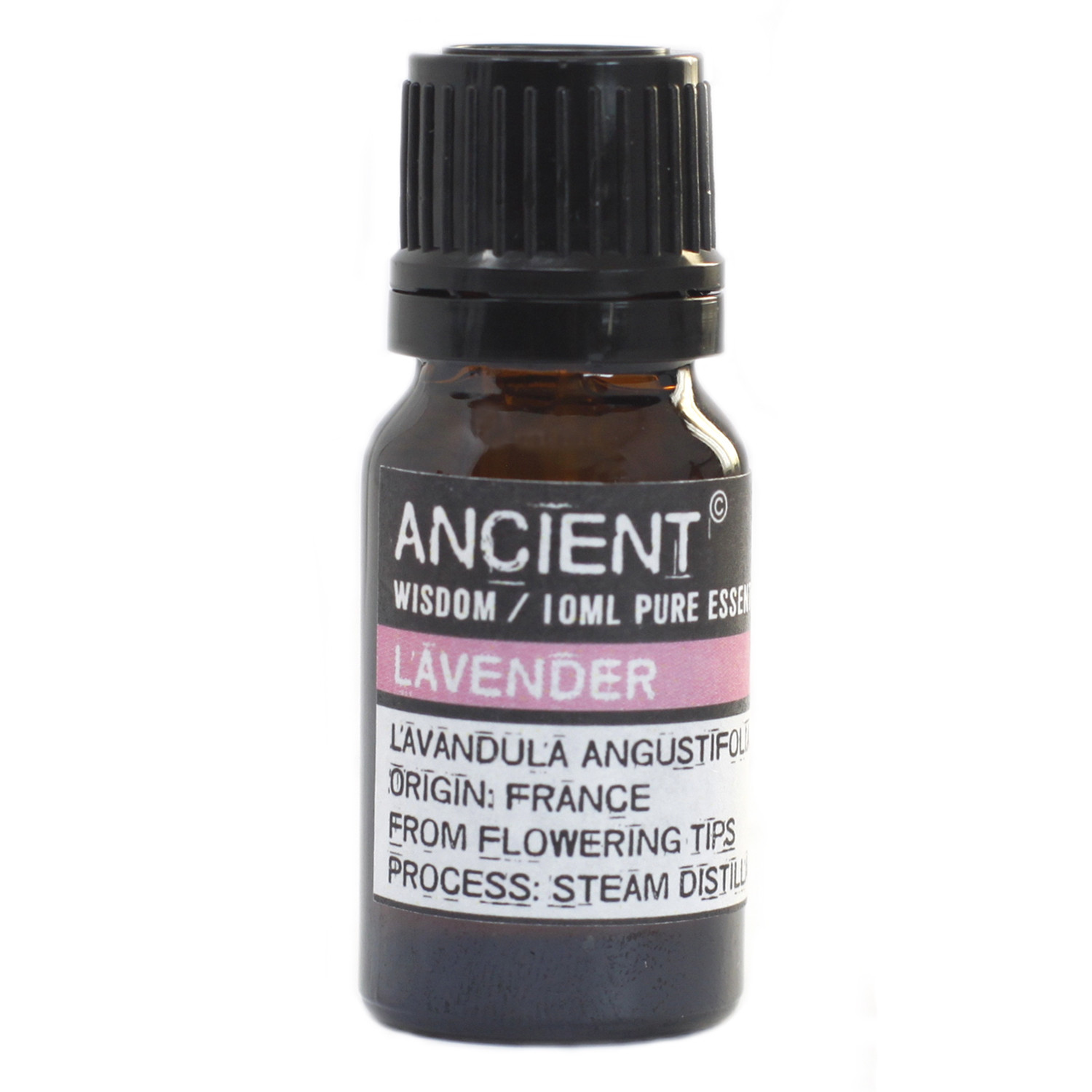
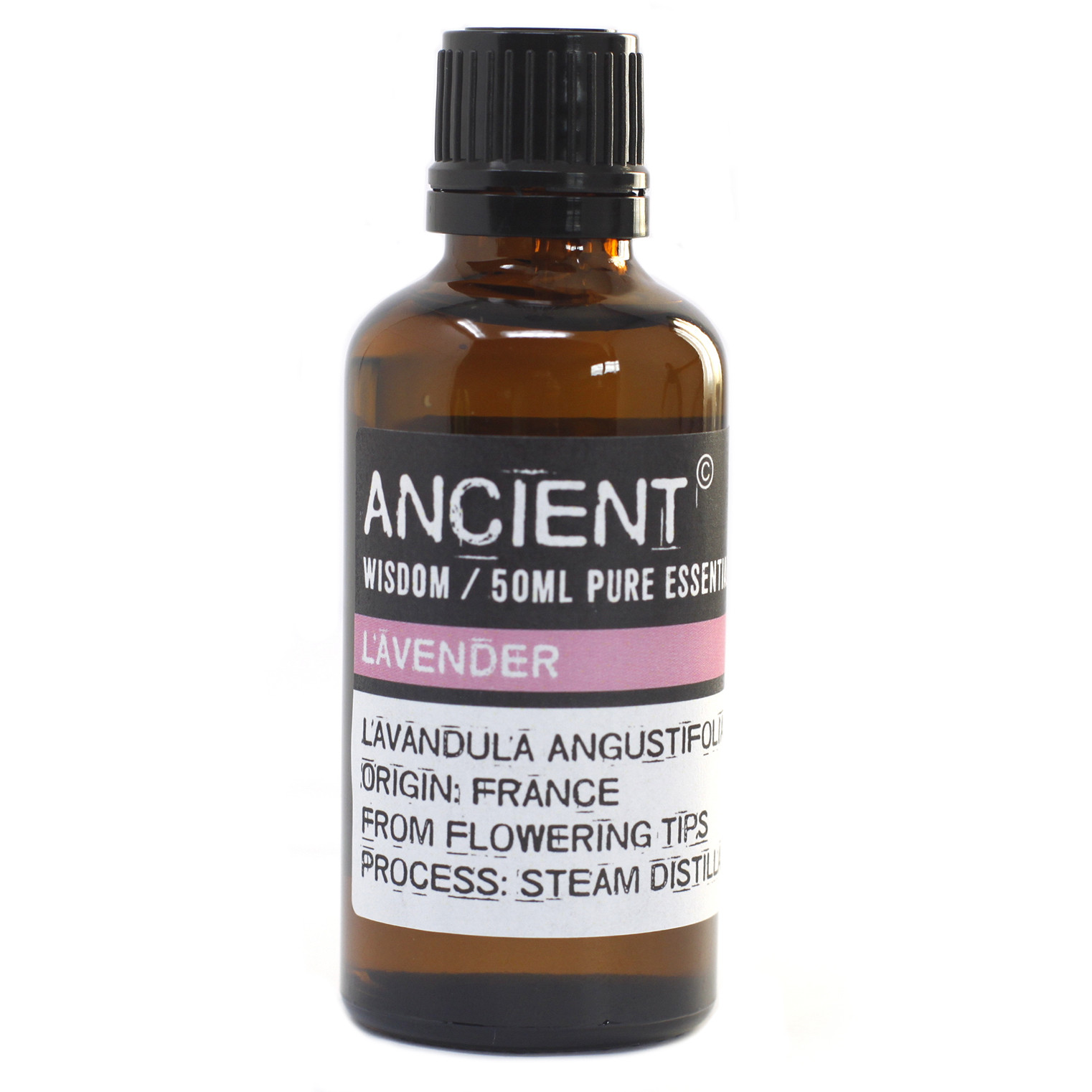
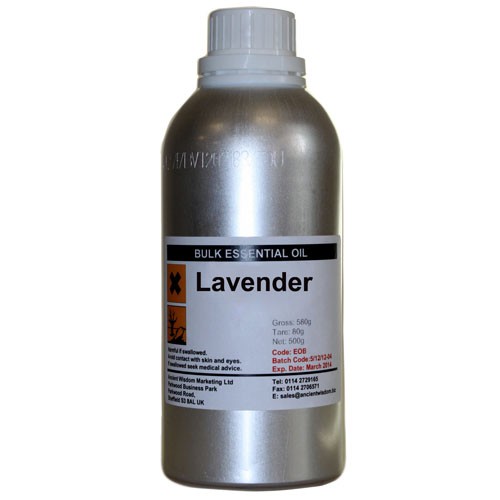













Reviews
There are no reviews yet.